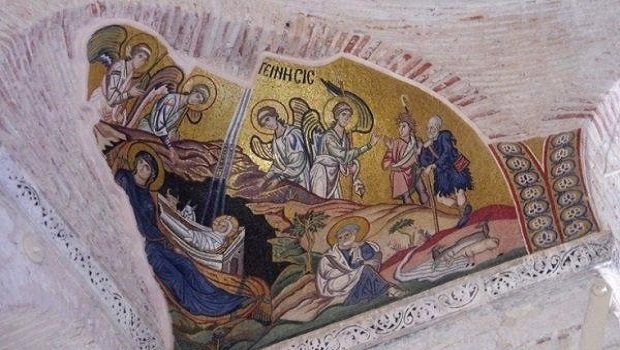Protopresbyter Georgios Dorbarakis
‘My beloved, God has no need of tears nor does he want people to mourn from the pain in their hearts. Rather, he wants us to rejoice and be glad out of love for him’ (Saint John of the Ladder, Discourse 7, 45).
You hear and read that the Lord blesses those who mourn. Over their sins and the sins of the whole world. You see the holy Fathers doing the same: they all stress the necessity for tears and mourning in the spiritual life. But don’t think that this is so because God enjoys our generally mournful condition. If that were true, God wouldn’t be who our Lord Jesus Christ revealed: God the Father, with boundless love for us. Instead, he’d be a harsh, sadistic ‘god’ who reveled in pain and in people’s tears. ‘Away with such blasphemy’.
Our God, the true triune God, is love, and his joy is that we should rejoice, that we should ‘see him and rejoice and be glad internally’. In other words, that we should be in the setting of the time when God first created us: continuous reference to him and love for him. ‘Before the transgression, there were no tears in Adam’ (46). Tears came to Adam and his descendants because he sinned. Sorrow and sadness are the price of his disobedience to God. And that will continue for as long as there are people.
But then came Christ, as God incarnate. And he obliterated the cause of our sorrow and tears, that is sin and its concomitant, death. And he brought back joy and gladness. ‘Rejoice’ was and is his permanent exhortation. But to whom? To those who love him and stay with him; who belong to his body, the Church, and don’t sin. Because those who sin open up the pain of tears once again, the permanent price of sin.
Then you realize that, as a Christian, you have to wrestle with two kinds of mourning: lamenting over sin itself, given that sin and sorrow always go together; and the mourning that you now have to cultivate, precisely because you see that you sin and that you thus lose your love for Christ. One is hell. The other co-exists with paradise and is what the saints call ‘joyful sorrow’. As you weep over your sins, your heart begins to laugh. You experience this paradox of the Christian life: you rejoice and mourn. Or, rather, you mourn and therefore rejoice. The mourning is participation in the Cross. The joy is sharing in the Resurrection. Cross and Resurrection are two sides of the same reality.
‘Put sin to death and then the tears of pain will have no place in your eyes’ (46).
Source: pemptousia.com




0 Comments